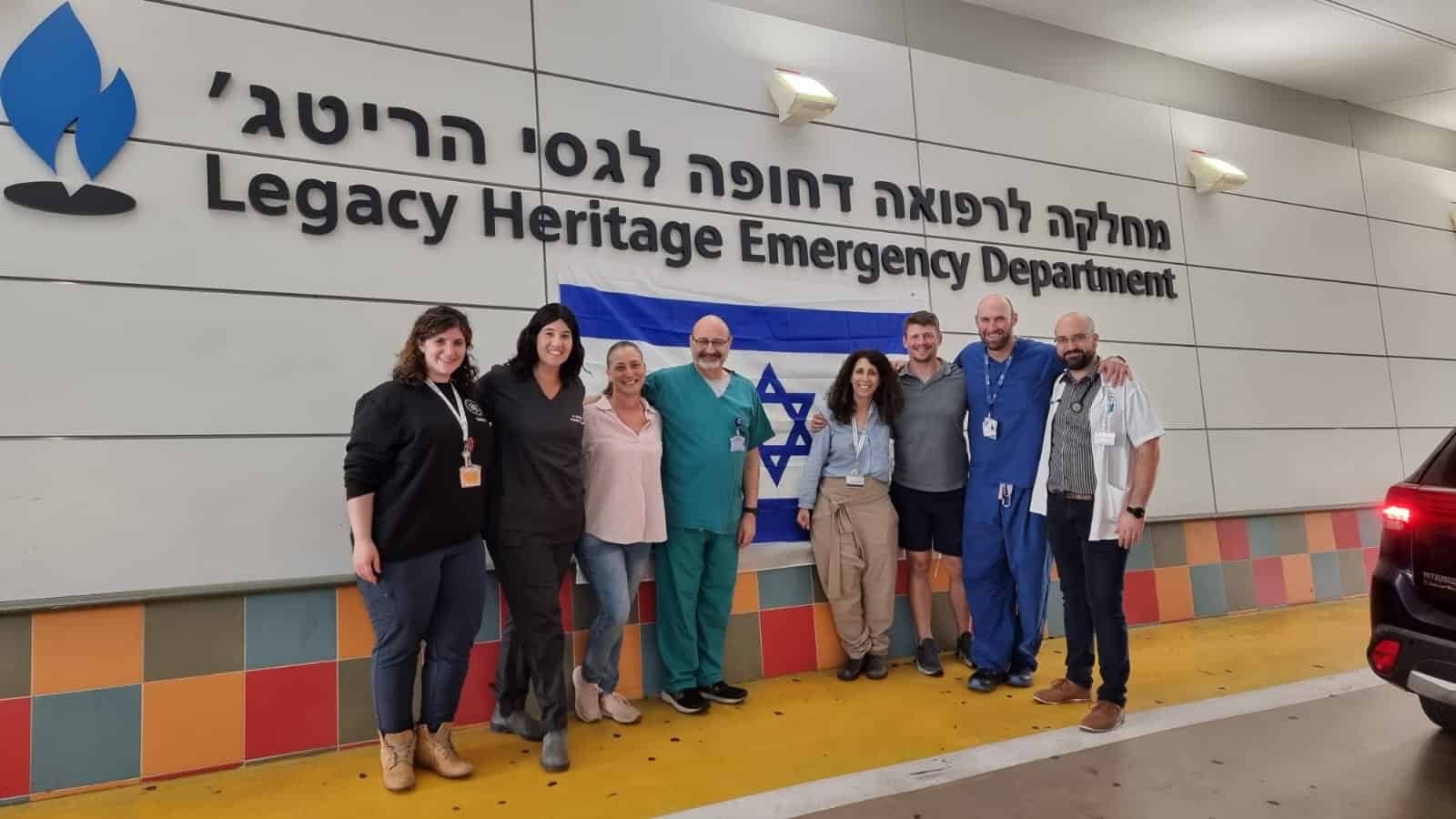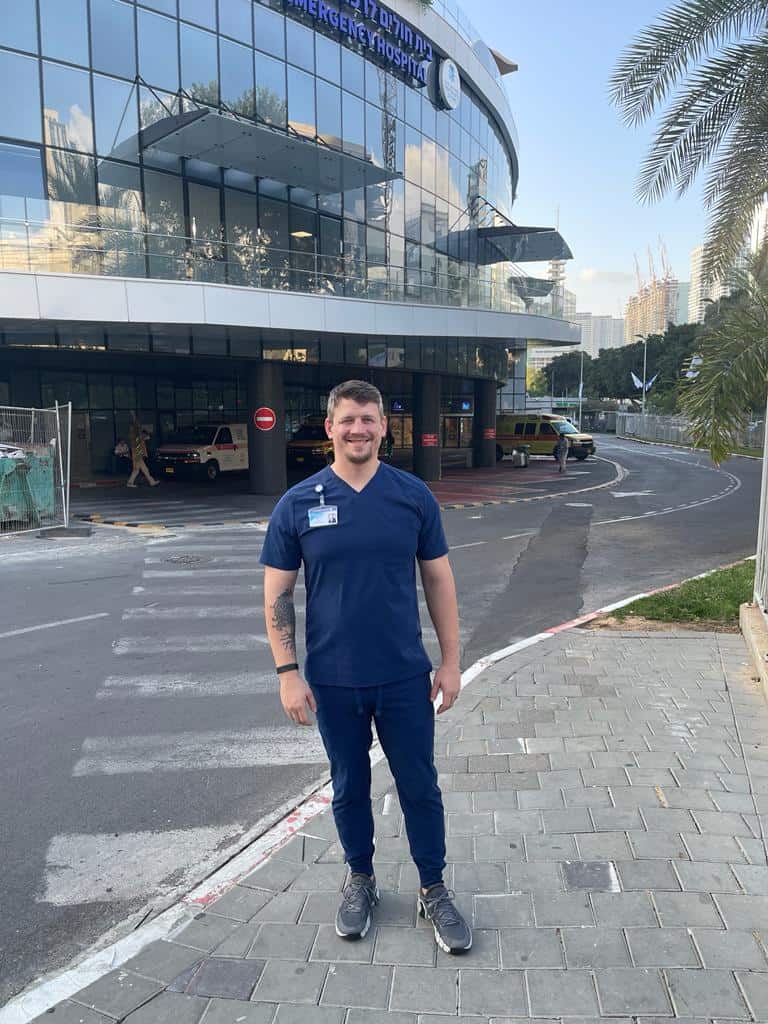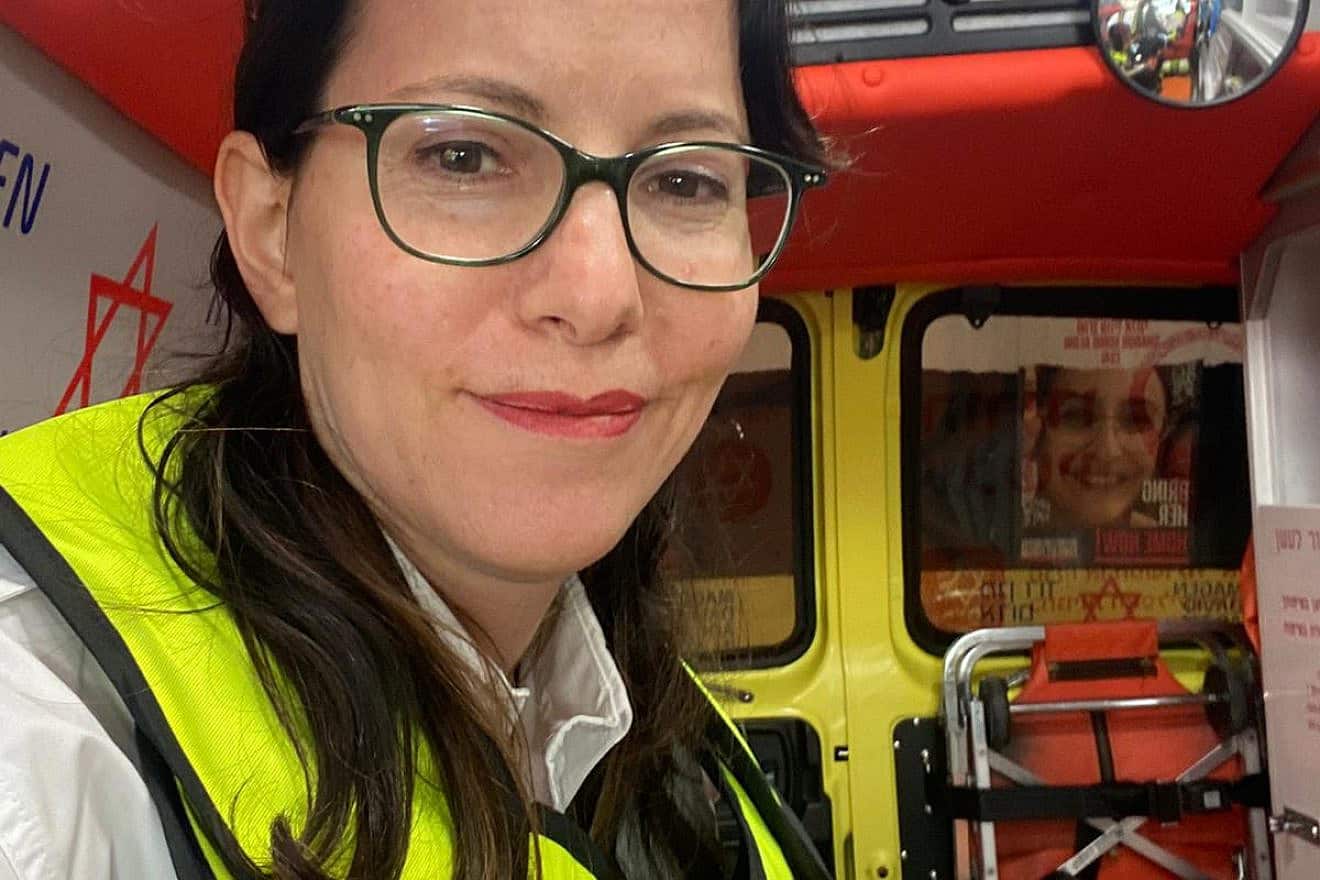Mere hours into the Oct. 7 onslaught, the Israeli Health Ministry received dozens of applications from medical teams abroad who wanted to come to Israel and volunteer.
It received requests from some 7,500 physicians from around the world, 450 of them with Israeli licenses. Of the applicants, 4,440 were from the United States, 1,000 from Europe, 500 from Canada and 150 from Australia. Most are Jewish, but many non-Jews have come to the aid of the country as well.
The ministry ended up accepting 200 of the applications from those who had important medical knowledge, such as forensic medical experts who had experience helping with the identification of bodies.
“We’re talking about very senior experts who are internationally renowned, who dropped everything to come,” Dr. Shoshy Goldberg, Government Chief Nursing Officer at the Ministry of Health, who was responsible for coordinating the volunteer activities of the foreign doctors. “Those with an Israeli license had no issue coming here to volunteer; however, those with foreign licenses needed to be recognized.”
To do so, Goldberg said the Health Ministry “established a team that provided an answer to that obstacle within 48 hours. We accepted applications from those in the field of trauma, anesthesia, surgery and intensive care as those are the skills most needed to treat battle injuries.
“We’re now reinforcing Soroka Medical Center with four volunteer ophthalmologists due to the large number of eye injuries from shrapnel,” she added.
“Additionally, 10 volunteer anesthesiologists have arrived at Barzilai Medical Center after some of their anesthesiologists were called up to serve in reserves,” she said.
Nefesh B’Nefesh, which each year eases the aliyah process for medical professionals through its MedEx program, coordinated this initiative through its comprehensive database of Jewish physicians from North America—enabling the organization to contact those who wished to come to Israel and assist.
Thanks to the cooperation between the Health and the Aliyah and Integration Ministries, and the Jewish Agency, Nefesh B’Nefesh has assisted more than 110 doctors from various specialties to Israel so far, with more expected to arrive if the situation on the ground calls for it.
“Supporting Israel’s health-care system and finding an immediate solution for the physician shortage is extremely vital,” said Tony Gelbart, chairman and co-founder of Nefesh B’Nefesh. “In addition, Nefesh B’Nefesh is exploring ways to help solve Israel’s long-term physician shortage as part of a broader strategic plan.”
Aliyah and Integration Minister Ofir Sofer added that “the support, commitment and solidarity of our Jewish brothers and sisters in the Diaspora, particularly in North America, is a solid demonstration of support and strengthens the State of Israel.”

‘Mainly focused on assisting paramedics‘
Dr. Steven Herman, a surgeon at the Division of Thoracic Surgery at Maimonides Medical Center in Brooklyn, N.Y., volunteered for two weeks at Barzilai Medical Center in Ashkelon and Ashdod. He helped dozens of soldiers and civilians, and said that he would be eager to volunteer again if needed.
When he landed in Barzilai, he was only supposed to perform minor surgeries. Then, suddenly, things changed.
“The ground invasion into Gaza began, and almost instantly, our emergency room was flooded with wounded soldiers, many of them with shrapnel or bullets that penetrated their bodies,” he said.
Herman first visited Israel in 1968 as a medical student. His wife came with him to Israel in her capacity as president of One Israel, an American NGO. She also volunteered, bringing aid and meeting with survivors of the Oct. 7 attack, who were evacuated to Jerusalem.
Leaving her children behind to help those in need Dr. Abigail Hankin-Wei, an emergency physician at Page Memorial Hospital in Virginia, volunteered with Magen David Adom in Ashkelon.
“For two weeks, I worked 13 shifts with ambulance teams, each shift being eight hours, where I helped respond to emergency calls,” she said.
“Between shifts, I would occasionally impart to my colleagues some knowledge I had about taking emergency ultrasound images when in the field,” she added. “I was mainly focused on assisting the paramedics who were very skilled and had extensive knowledge. But sometimes, we’d have different ideas on how to treat a patient.”
Hankin-Wei considered staying longer in Israel, but she felt compelled to return to her three small children back at home.
“One of the core values I took from Judaism is the commitment to repairing the world, tikkun olam. I believe that when a person is asked for help and can provide it, they should do everything in their power to step up to the plate,” said Hankin-Wei.
‘Background in combat zones under fire‘
Dr. Andrew Griffin, an emergency medicine specialist at Conemaugh Memorial Medical Center in Johnstown, Pa., and a former staff sergeant in the U.S. Army, was well acquainted with working in battle conditions.
“I was a volunteer doctor in the emergency medicine department at Ichilov Medical Center,” he said. “There, I helped guide medical teams on how to better deal with incidents with many casualties and treated various war-related injuries.
“In addition, I joined the IDF in many exercises in the field and on bases. I was able to leverage my previous experience in the army and apply the lessons, I learned in combat against organizations like ISIS, to the current situation in Gaza and the Lebanese border, as I had an extensive background in providing medical assistance in combat zones under fire.”

Griffin was in Israel for more than six weeks and plans to come back next month for another five weeks of volunteer service, both in hospitals and with the IDF. He also plans to get married in Israel on Jan. 23; his fiancé is an officer in the Israel Air Force.
“Israel is our home. In the next few years, I plan to make aliyah … because my heart is in Israel,” he said.
He was heartbroken when he heard of the events of Oct. 7, not only because his fiancé was in the air force, but also for his girlfriend’s sisters; a 20-year-old who serves in the Home Front Command and an 18-year-old who is based on the border with Lebanon.
Since then, what disturbs Griffin the most and what guides his volunteering efforts are the atrocities that took place that day.
“The main thing I struggled with was the silence of so many who I considered my closest friends, non-Jewish friends from childhood, from medical school and even from the hospital where I work. These are people I value very much both on a personal and professional level,” he lamented.
“Their silence was painful in a way that I don’t know how to describe. These are people who know my fiancé and her family and they know that they are in Israel and never sent any messages of support. Nothing. As if nothing ever happened.”
He added that “I’m no stranger to antisemitism. I can’t count the number of times families in hospitals have told me they don’t want me to treat them because they don’t want to be treated by a Jew after noticing I wear a kippah. That’s only the tip of the iceberg. I’ve never used the Holocaust as a focal point of my Judaism. But the lack of response from my friends is making me reconsider a question that surfaced on social media: ‘Who of your non-Jewish friends would help hide your family?'”
Originally published by Israel Hayom.


























